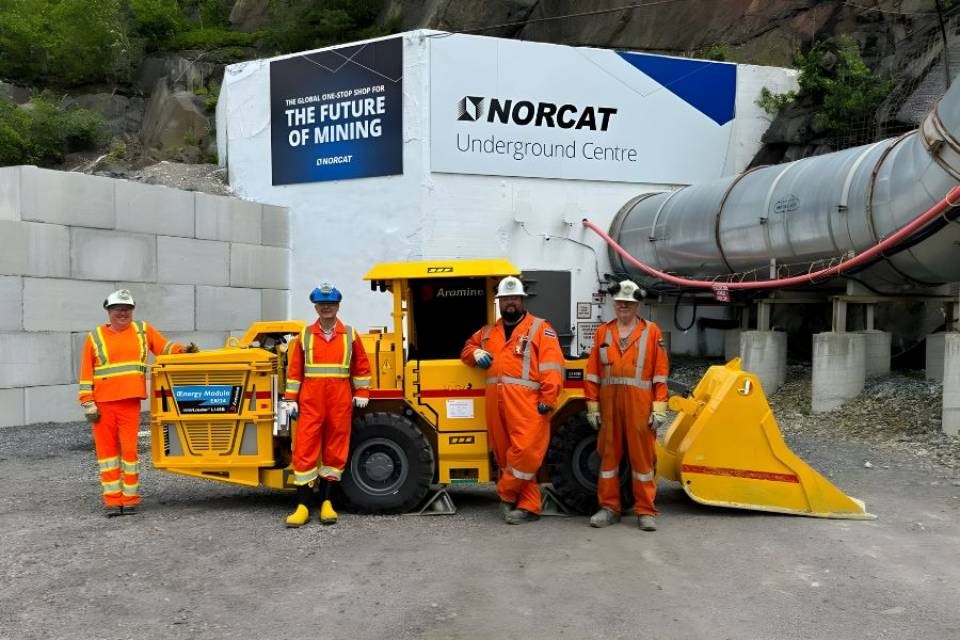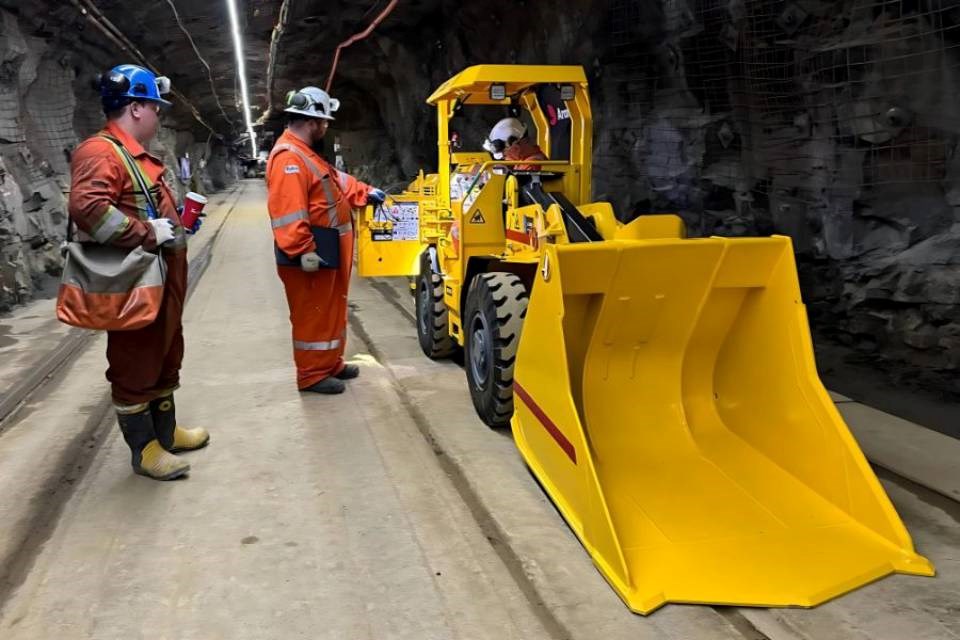Workers looking to learn how to operate a battery electric vehicle (BEV) underground now have a fast track to employment, thanks to NORCAT.
The Sudbury-based hub is unrolling its new BEV operators program, and according to Brandon Vance, a senior consultant with NORCAT's Advisory division, the results have been positive, so far.
“We do some tracking of the students,” Vance told Northern Ontario Business. “We have a certain percentage that are employed either immediately after the training, or they get employed three months after, six months after.”
In October, the federal government gave NORCAT $225,000 from its Zero Emission Vehicle Awareness Initiative to develop training initiatives including underground demonstrations, curriculum development and deployment, and hands-on experiential training.
- Innovation centre developing 'real-world' mining electric vehicle training
- Sudbury builds on the change to battery electric power
The goal of the course — currently offered as a component of the Common Core training program — is to equip people with hands-on knowledge of BEVs. But more importantly, Vance said, is to make sure operators feel comfortable with the new technology.
So far, the innovation centre has seen approximately 140 students get hands-on learning.
“I would say that if [learners] are confident, and they're saying that this training was relevant to my work, and it improved my knowledge of BEV hazards, then I think we’re happy.
“And if they confidently know how to mitigate or identify some of the risks with BEVs, and confident in how to control them, then I think we're happy.”
NORCAT’s course is unique to the area, Vance said. While Cambrian College and Collège Boréal provide students with a BEV maintenance course, NORCAT lets students jump into the driver’s seat.
The training vehicle — manufactured by France-based Aramine — is a generic-style underground loader that experienced operators will likely be familiar with. Most of the changes come from its adaptation and reconfiguration into a BEV.
“Students are going to all get a chance to practise their starting procedures, and then their post-start checks,” Vance said. “As soon as it’s started up, they can look at all the different operating parameters, check out the dashboard, what ranges everything is supposed to be in, and make sure it's ready to be operated safely.”
From there, Vance said, students will take the BEV for a test run on site across several days.
“They’ll do the practice driving, forwards, backwards, left turns, right turns, and whatnot,” he said. “And then they'll get a chance to actually muck with some ore. They'll be able to load their bucket up, drive it around, dump it, operate in reverse, everything like that.”
After the test, operators will learn about proper charging techniques, an aspect of BEVs that some find to come with a few concerns.
“Charging is obviously unique,” Vance said. “You're not filling it up with any fuel. They're going to go over the charging procedures, practise and understand the charging limitations and what needs to be charged, and how to do it safely.”

Because of the relatively quick, industry-wide push towards BEVs in the underground environment, there hasn’t yet become a standard for safety training around inspections and charging.
There are also concerns around BEVs, and some well-publicized stories about spontaneous battery explosions.
These were concerns that NORCAT addressed head-on when developing the program, Vance said.
“There's misconceptions out there, and there's things that people are worried about,” Vance said. “It's not that BEVs are more likely to catch fire, but if they do catch fire, the consequences can be more severe.”
Battery fires can be more difficult to extinguish, and unpredictable.
“They may reignite spontaneously, like some Teslas and some commercial vehicles, so that's concerning,” Vance said. “And of course, the fumes. We're always worried about smoke underground. Now you're adding dangerous chemicals to the smoke and the fumes. So that's a worry that people have, and it's very valid.”
The NORCAT program ensures that operators have a working knowledge of BEVs’ power systems, including some know-how on when it’s time to pull the plug, so to speak.
“It’s just educating people on the importance of doing your regular maintenance, doing your inspections as an operator, knowing what what signs need to look for, what signs that would make you say, ‘Maybe this thing should not be operated today.’”
As far as the program’s future, Vance said they’re hoping to soon hone it down into a supplementary one-day program open to all, not just students taking the Common Core.
“We're hoping with the one-day program, that we will be able to just upskill existing operators,” Vance said. “So operators that are scoop operators, for example, and have only driven diesel, if they know that their operations are going electric, you can come to NORCAT for a day. Take our one day BEV operator course and upskill.”
Looking further down the road, equipping more workers with the skills to operate the new wave of machines will have a huge impact on the local economy.
“It's a need for the industry,” Vance said. “This is the way of the future. We are going greener. You are going to see more battery electric machinery, not even just in mining, but everywhere.
“And so this course will be able to give you the skills and give you the knowledge and the awareness that you need to be able to work around these things safely.
“This will give you that base knowledge, the base skills, so you have that confidence when you get into the workforce. And confidence is a big thing.”
